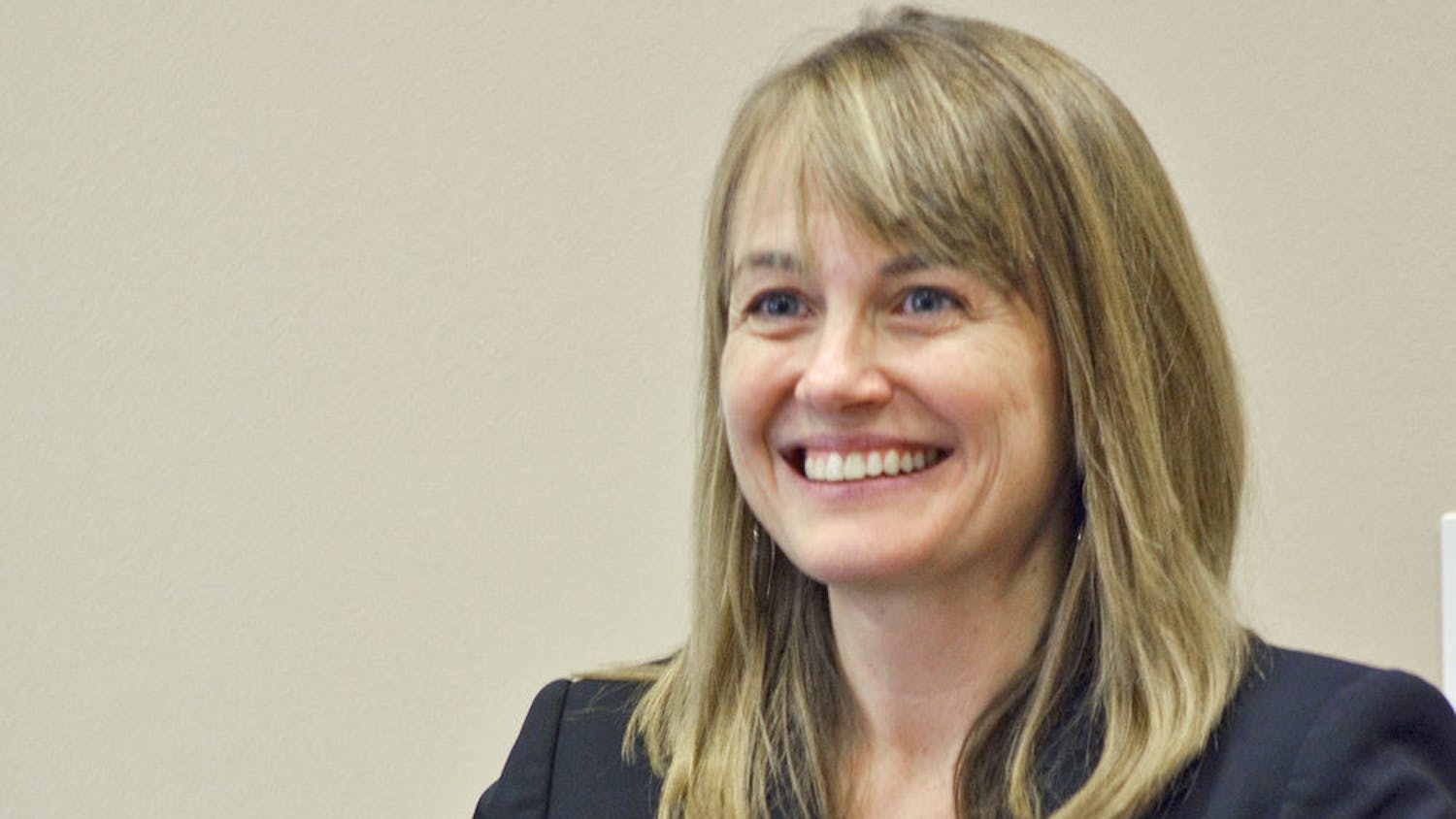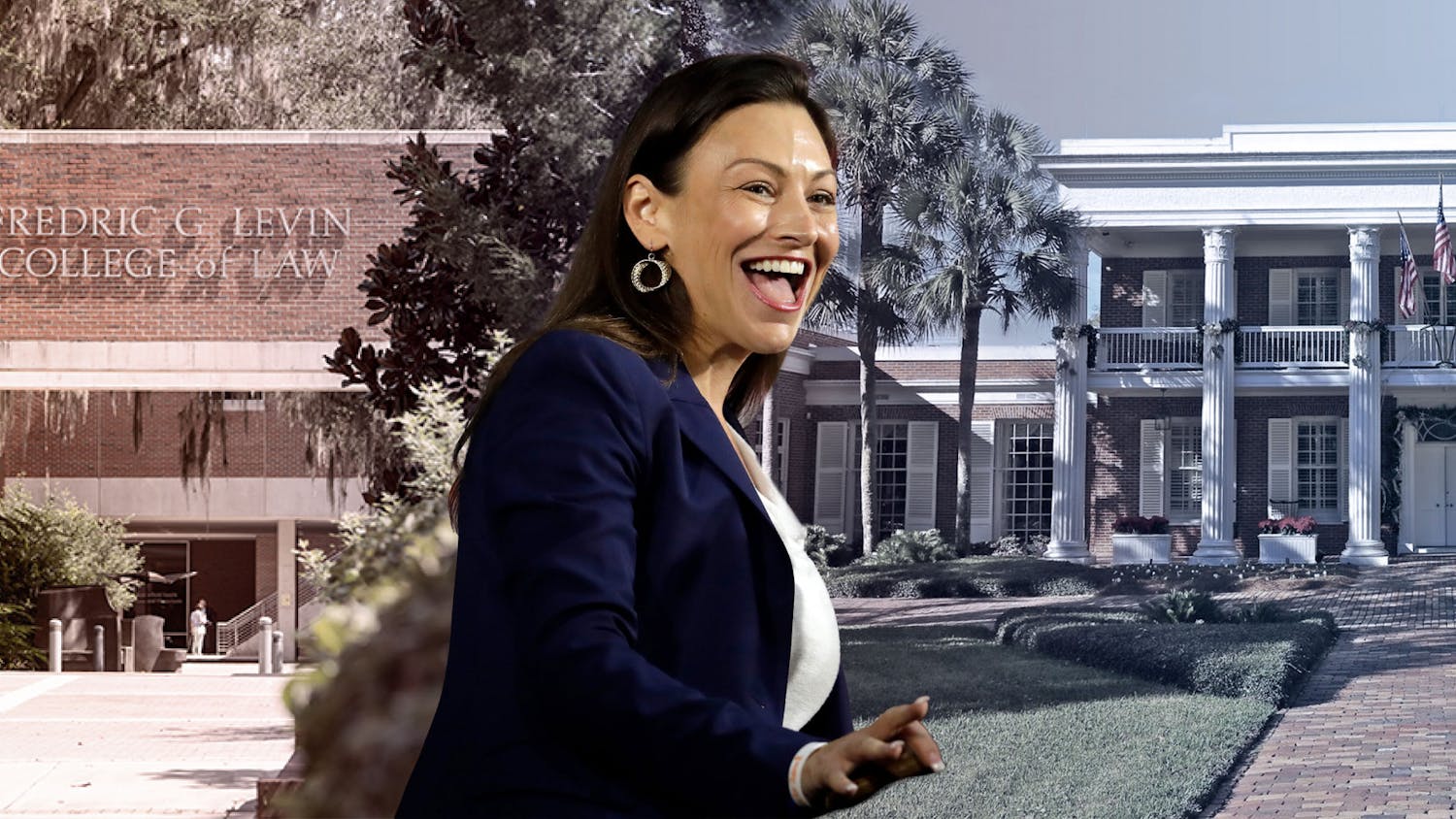A former high-ranking member of the French judiciary spoke about balancing liberty and counterterrorism in France on Thursday.
Guy Canivet, who was a member of the French Constitutional Council, spoke at UF’s Levin College of Law about the problems France’s courts face during a state of emergency. About 50 people attended the event.
A state of emergency can only be implemented when a state faces great danger, he said. The French government declared a state of emergency Nov. 14, the day after about 130 people were killed in the Paris attacks.
Canivet, who was the president of the French Court of Cassation, said the state of emergency declared in November is still in effect. It allows the French government to take extreme measures, such as the prohibition of public meetings and searches without warrants, to protect its citizens.
“The question becomes where to draw the line between counterterrorism measures and human rights,” Canivet said. “We must find a balance.”
Claire Germain, an associate dean for legal information at the College of Law, said she hopes Canivet’s lecture teaches students how world events affect the judicial system.
“We are citizens of the world, so it’s important for us to understand other countries,” Germain said.
She said the talk was important because of world affairs.
“Terrorism is a global issue,” Germain said. “Everyone is affected by it, so it’s important to understand the issues behind it.”
Kelly Scurry, a 24-year-old UF law student, said he enjoyed Canivet’s explanation of the French judiciary.
“It’s good to see (the French government) attempting to ensure that constitutional rights remain during its state of emergency,” Scurry said.
Canivet said the court’s decisions during the state of emergency are difficult to evaluate because the state of emergency is ongoing.
“The events of the future will tell us whether the measures we are taking are correct,” Canivet said. “But the primary task of the government is the protection of its people.”





